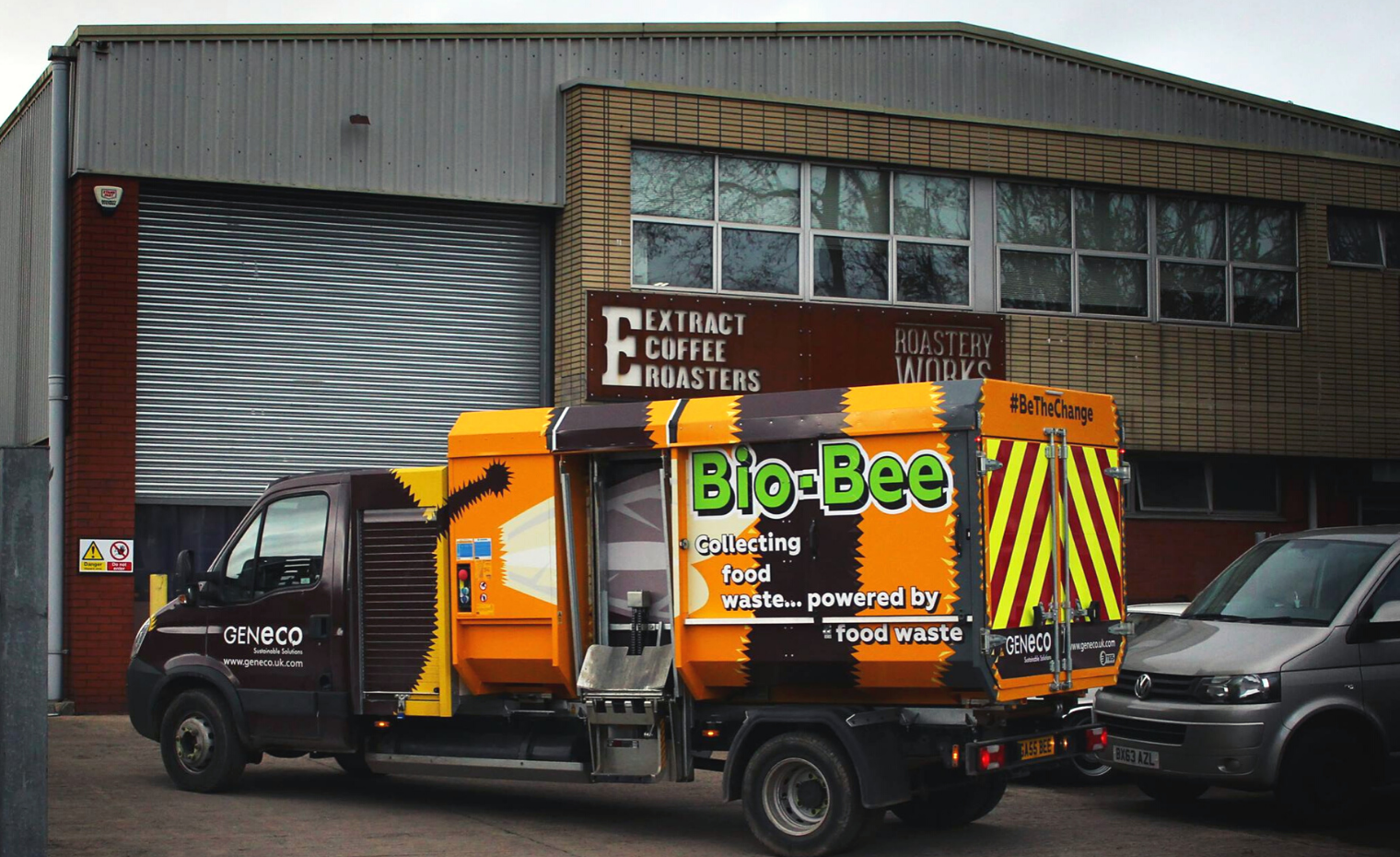
Extract Loves Recycling Coffee
Part of our mission to make coffee better includes making coffee better for the planet. That means lowering our environmental impact. Recycling and coffee sustainability has long been a big part of life in our roastery Refurbishing old roasters; using pallets and scrap metal to build our training area; sending coffee chaff to the allotments of our employees. Our first test roaster, The Prof, was even constructed out of an old paint gun.
While we drink coffee as much as the next person, there's no hiding from the staggeringly high coffee waste levels produced in our industry.
Five hundred thousand tonnes of coffee grounds are wasted every year in the UK. Most of this gets sent to landfill where it produces methane. Methane gas is 28 times more potent than CO2.
In this blog we share some of the innovative solutions we've found to recycling our coffee waste. Some of these are more suitable for businesses like cafes, restaurants and roasteries. Others are solutions which you can do at home!
Recycling coffee as chicken bedding
In 2021 we started working with New MacDonald's farm in Bath. A higher welfare, organic farm who now uses our leftover coffee chaff as bedding for their chickens and our leftover coffee grounds as compost for their fields.
Recycling coffee into biofuel
Waste coffee chaff is a problem for coffee roasters, like us. Spent coffee grounds, on the other hand, are a waste product in homes, offices, cafes, restaurants (and of course coffee roasteries!).
We recycle our spent coffee grounds with Bristol-based GENeco, a local waste management firm that turns food waste into biofuels. If your coffee goes into your food waste bin at home, chances are, something similar happens to your coffee waste too!
Our spent coffee grounds are composted in an anaerobic digester and turned into bio-diesel to power GENeco's collection vehicles, bio-methane which powers our homes and fertiliser which is sold to local farms.
GENeco estimated that the 3.4 tonnes of chaff they collected from us in June 2021 has displaced 2 tonnes of carbon dioxide through landfill diversion and produced enough power to charge an iPad more than 29,000 times!

Recycling coffee into coffee logs
If you're looking for commercial coffee recycling solutions within the M25 and the South East of England, Bio Bean have an ingenious solution. In 2013 Arthur Kay was studying Architecture at university when he came up with the idea for bio-bean. From there, Bio-Bean won numerous awards, got funding and started an intensive programme of research and development. In 2015 they opened the world's first coffee waste factory in Cambridgeshire and launched a nationwide collection service.
Once recycled, the coffee grounds are turned into coffee logs, biofuels and pellets. The latest research shows that recycling through Bio-Bean instead of sending your coffee grounds to land fill results in 60% less CO2 emissions.
Bio-Bean collect coffee waste in London and the South-East. We think that Bio-Bean is an excellent solution to the waste problem in our industry. Find out more about Bio-Bean, their collection services and recycling your coffee waste.
Recycling coffee as compost
Coffee grounds are rich in nutrients and make excellent compost. If you don't have a home-composting solution yourself, you can also donate your coffee waste to a local allotment or city farm.

Recycling coffee as a body scrub
The engineering team at Extract Coffee Roasters have long known the cleaning properties of coffee grounds on your skin. Did you know that a coffee grounds scrub is a great way to remove oil from your hands after a messy job? Just rub into your hands with water and a bit of soap, your hands will be spotless in no time!
You can also make your own coffee-scrubs to use as an exfoliant or, check out companies like Upcircle who make incredible skincare products, including serums, washes and scrubs - all from waste coffee.
Recycling coffee to grow mushrooms
Coffee grounds make a fine base for growing artisan mushrooms (who knew!) There are plenty of guides of this online. So, if you fancy growing your own mushroom crop this year, save your grinds and get googling.
